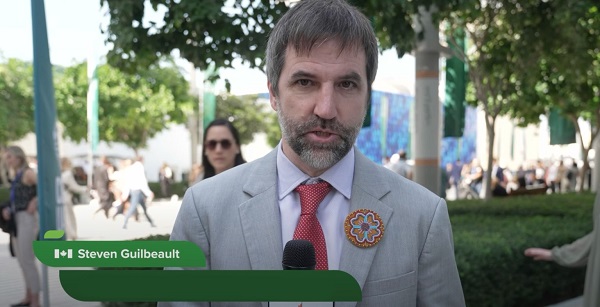Uncategorized
Records show FBI was probing Michael Cohen long before raid

NEW YORK — Special counsel Robert Mueller began investigating President Donald Trump’s former lawyer, Michael Cohen, for fraud in his personal business dealings and for potentially acting as an unregistered foreign agent at least nine months before FBI agents in New York raided his home and office, according to documents released Tuesday.
The series of heavily redacted search warrant applications and other documents revealed new details about the timing and depth of the probe into Cohen, who ultimately pleaded guilty to tax fraud, bank fraud, campaign finance violations and lying to Congress.
The records show the inquiry into Cohen had been going on since July 2017 — far longer than previously known— and that a big part of its focus was Cohen’s taxi businesses and misrepresentations he made to banks as part of a scheme to relieve himself of some $22 million in debt he owed on taxi medallion loans.
Prosecutors were also interested in money that was flowing into Cohen’s bank accounts from consulting contracts he’d signed after Trump won office. Some of those payments were from companies with strong foreign ties, including a Korean aerospace company and Columbus Nova, an investment management firm affiliated with Russian billionaire Viktor Vekselberg.
Cohen was ultimately not charged with failing to register as a foreign agent.
Many sections of the records dealing with the campaign-finance violations Cohen committed when he paid two women to stay silent about alleged affairs they had with Trump were redacted. A judge ordered those sections to remain secret after prosecutors said they were still investigating campaign finance violations.
Lanny Davis, an attorney for Cohen, said the release of the search warrant “furthers his interest in continuing to
The FBI raided Cohen’s Manhattan home and office last April, marking the first public sign of a criminal investigation that has threatened Trump’s presidency and netted Cohen a three-year prison sentence he’s scheduled to start serving in May. The agents who also scoured Cohen’s hotel room and safe deposit box, seized more than 4 million electronic and paper files in the searches, more than a dozen mobile devices and iPads, 20 external hard drives, flash drives and laptops.
Both Cohen and Trump cried foul over the raids, with Cohen’s attorney at the time calling them “completely inappropriate and unnecessary” and the president taking to Twitter to declare that “Attorney-client privilege is dead!”
A court-ordered review ultimately found only a fraction of the seized material to be privileged.
Tuesday’s release of the search warrant came nearly six weeks after U.S. District Judge William H. Pauley III partially granted a request by several media organizations, including The Associated Press, that the search warrant be made public due to the high public interest in the case.
David E. McCraw,
“The documents are important because they allow the public to see first hand why the investigation was initiated and how it was conducted,” McCraw said in an email.
The judge acknowledged prosecutors’ concerns that a wholesale release of the document “would jeopardize an ongoing investigation and prejudice the privacy rights of uncharged third parties,” a ruling that revealed prosecutors are still investigating the campaign-finance violations.
The judge ordered prosecutors to redact Cohen’s personal information and details in the warrant that refer to ongoing investigations and several third-parties who have
“At this stage, wholesale disclosure of the materials would reveal the scope and direction of the Government’s ongoing investigation,” Pauley wrote in a ruling last month.
Cohen pleaded guilty over the summer to failing to report more than $4 million in income to the IRS, making false statements to financial institutions and campaign-finance violations stemming from the hush-money payments he arranged for porn actress Stormy Daniels and former Playboy model Karen McDougal. Cohen implicated Trump in his guilty plea, saying the president directed him to make the payments during his 2016 campaign.
___
For more in-depth information, follow AP coverage at https://apnews.com/TrumpInvestigations
Jim Mustian And Larry Neumeister, The Associated Press
Uncategorized
CNN’s Shock Climate Polling Data Reinforces Trump’s Energy Agenda


From the Daily Caller News Foundation
As the Trump administration and Republican-controlled Congress move aggressively to roll back the climate alarm-driven energy policies of the Biden presidency, proponents of climate change theory have ramped up their scare tactics in hopes of shifting public opinion in their favor.
But CNN’s energetic polling analyst, the irrepressible Harry Enten, says those tactics aren’t working. Indeed, Enten points out the climate alarm messaging which has permeated every nook and cranny of American society for at least 25 years now has failed to move the public opinion needle even a smidgen since 2000.
Appearing on the cable channel’s “CNN News Central” program with host John Berman Thursday, Enten cited polling data showing that just 40% of U.S. citizens are “afraid” of climate change. That is the same percentage who gave a similar answer in 2000.
Dear Readers:
As a nonprofit, we are dependent on the generosity of our readers.
Please consider making a small donation of any amount here.
Thank you!
Enten’s own report is an example of this fealty. Saying the findings “kind of boggles the mind,” Enten emphasized the fact that, despite all the media hysteria that takes place in the wake of any weather disaster or wildfire, an even lower percentage of Americans are concerned such events might impact them personally.
“In 2006, it was 38%,” Enten says of the percentage who are even “sometimes worried” about being hit by a natural disaster, and adds, “Look at where we are now in 2025. It’s 32%, 38% to 32%. The number’s actually gone down.”
In terms of all adults who worry that a major disaster might hit their own hometown, Enten notes that just 17% admit to such a concern. Even among Democrats, whose party has been the major proponent of climate alarm theory in the U.S., the percentage is a paltry 27%.
While Enten and Berman both appear to be shocked by these findings, they really aren’t surprising. Enten himself notes that climate concerns have never been a driving issue in electoral politics in his conclusion, when Berman points out, “People might think it’s an issue, but clearly not a driving issue when people go to the polls.”
“That’s exactly right,” Enten says, adding, “They may worry about in the abstract, but when it comes to their own lives, they don’t worry.”
This reality of public opinion is a major reason why President Donald Trump and his key cabinet officials have felt free to mount their aggressive push to end any remaining notion that a government-subsidized ‘energy transition’ from oil, gas, and coal to renewables and electric vehicles is happening in the U.S. It is also a big reason why congressional Republicans included language in the One Big Beautiful Bill Act to phase out subsidies for those alternative energy technologies.
It is key to understand that the administration’s reprioritization of energy and climate policies goes well beyond just rolling back the Biden policies. EPA Administrator Lee Zeldin is working on plans to revoke the 2010 endangerment finding related to greenhouse gases which served as the foundation for most of the Obama climate agenda as well.
If that plan can survive the inevitable court challenges, then Trump’s ambitions will only accelerate. Last year’s elimination of the Chevron Deference by the Supreme Court increases the chances of that happening. Ultimately, by the end of 2028, it will be almost as if the Obama and Biden presidencies never happened.
The reality here is that, with such a low percentage of voters expressing concerns about any of this, Trump and congressional Republicans will pay little or no political price for moving in this direction. Thus, unless the polls change radically, the policy direction will remain the same.
David Blackmon is an energy writer and consultant based in Texas. He spent 40 years in the oil and gas business, where he specialized in public policy and communications.
Uncategorized
Kananaskis G7 meeting the right setting for U.S. and Canada to reassert energy ties


Energy security, resilience and affordability have long been protected by a continentally integrated energy sector.
The G7 summit in Kananaskis, Alberta, offers a key platform to reassert how North American energy cooperation has made the U.S. and Canada stronger, according to a joint statement from The Heritage Foundation, the foremost American conservative think tank, and MEI, a pan-Canadian research and educational policy organization.
“Energy cooperation between Canada, Mexico and the United States is vital for the Western World’s energy security,” says Diana Furchtgott-Roth, director of the Center for Energy, Climate and Environment and the Herbert and Joyce Morgan Fellow at the Heritage Foundation, and one of America’s most prominent energy experts. “Both President Trump and Prime Minister Carney share energy as a key priority for their respective administrations.
She added, “The G7 should embrace energy abundance by cooperating and committing to a rapid expansion of energy infrastructure. Members should commit to streamlined permitting, including a one-stop shop permitting and environmental review process, to unleash the capital investment necessary to make energy abundance a reality.”
North America’s energy industry is continentally integrated, benefitting from a blend of U.S. light crude oil and Mexican and Canadian heavy crude oil that keeps the continent’s refineries running smoothly.
Each day, Canada exports 2.8 million barrels of oil to the United States.
These get refined into gasoline, diesel and other higher value-added products that furnish the U.S. market with reliable and affordable energy, as well as exported to other countries, including some 780,000 barrels per day of finished products that get exported to Canada and 1.08 million barrels per day to Mexico.
A similar situation occurs with natural gas, where Canada ships 8.7 billion cubic feet of natural gas per day to the United States through a continental network of pipelines.
This gets consumed by U.S. households, as well as transformed into liquefied natural gas products, of which the United States exports 11.5 billion cubic feet per day, mostly from ports in Louisiana, Texas and Maryland.
“The abundance and complementarity of Canada and the United States’ energy resources have made both nations more prosperous and more secure in their supply,” says Daniel Dufort, president and CEO of the MEI. “Both countries stand to reduce dependence on Chinese and Russian energy by expanding their pipeline networks – the United States to the East and Canada to the West – to supply their European and Asian allies in an increasingly turbulent world.”
Under this scenario, Europe would buy more high-value light oil from the U.S., whose domestic needs would be back-stopped by lower-priced heavy oil imports from Canada, whereas Asia would consume more LNG from Canada, diminishing China and Russia’s economic and strategic leverage over it.
* * *
The MEI is an independent public policy think tank with offices in Montreal, Ottawa, and Calgary. Through its publications, media appearances, and advisory services to policymakers, the MEI stimulates public policy debate and reforms based on sound economics and entrepreneurship.
As the nation’s largest, most broadly supported conservative research and educational institution, The Heritage Foundation has been leading the American conservative movement since our founding in 1973. The Heritage Foundation reaches more than 10 million members, advocates, and concerned Americans every day with information on critical issues facing America.
-

 Crime2 days ago
Crime2 days agoPierre Poilievre says Christians may be ‘number one’ target of hate violence in Canada
-

 Business1 day ago
Business1 day agoBill C-8 would allow minister to secretly cut off phone, Internet service
-

 International2 days ago
International2 days agoNetanyahu hails TikTok takeover as Israel’s new ‘weapon’ in information war
-

 Business1 day ago
Business1 day agoElon Musk announces ‘Grokipedia’ project after Tucker Carlson highlights Wikipedia bias
-

 Business14 hours ago
Business14 hours agoCanada’s health-care system is not ‘free’—and we’re not getting good value for our money
-

 Economy1 day ago
Economy1 day agoReconciliation means clearing the way for Indigenous leadership
-

 National2 days ago
National2 days agoCanada’s birth rate plummets to an all-time low
-

 Crime23 hours ago
Crime23 hours agoDrug trafficker says Trump battle with the cartels is making an impact






